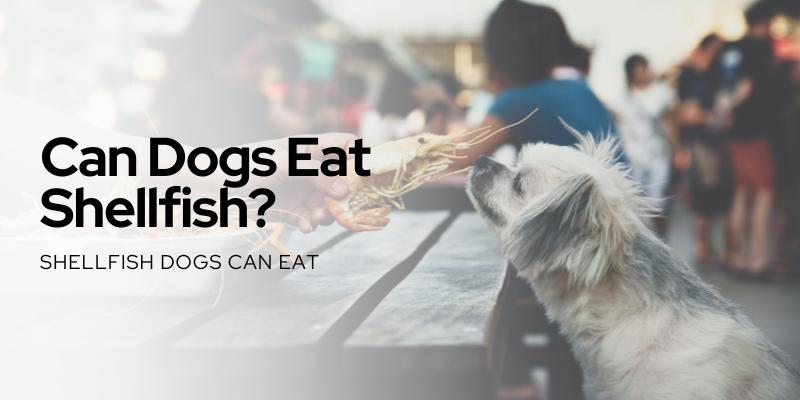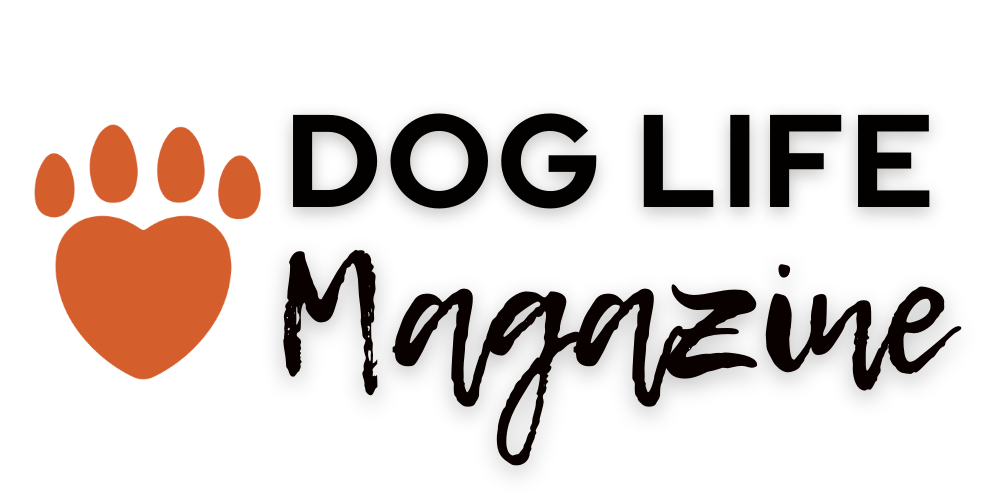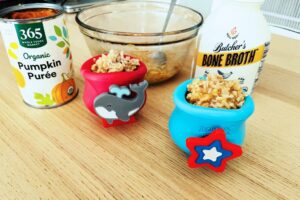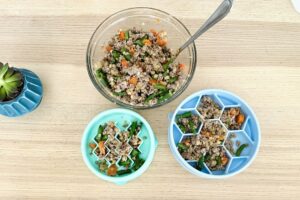You are in charge of caring for and protecting your dog. Your dog is a precious member of your family. The last thing you want to do is feed them something that might make them sick or trigger food allergies. So, you might be wondering, can dogs eat shellfish?
If your dog is anything like mine, they are constantly eying your plate, hoping you will share. Resisting those sad eyes as they burrow into your soul is challenging. Even though they would love to taste everything on your plate, some human foods can harm dogs.
Your dog’s nutritional needs differ from yours, so it is vital to learn which produce, dairy, and proteins are ok for your baby to eat and which are potentially toxic. Shellfish, in particular, carry a lot of potential risks and benefits.
Some shellfish are perfectly fine for dogs, whereas others are potentially toxic. Knowing the difference before giving your fur baby a taste is essential.
What is considered shellfish?

Shellfish are marine animals that are members of the crustation and mollusk families. They are characterized by an external shell and live primarily in saltwater.
They include:
- Shrimp
- Crayfish
- Crab
- Lobster
- Clams
- Scallops
- Oysters
- Mussels
Shellfish are nutritious options for humans and dogs. They are typically low in calories and contain lean proteins, healthy fats, and micronutrients like zinc, iron, and magnesium. Most of the fat in shellfish comes in the form of Omega-3 fatty acids, which are proven to improve brain function and heart health in humans.
Even though they are incredibly nutritious, like most fish, shellfish can be risky for humans and dogs.
The risks of feeding your dog shellfish:
- Raw shellfish can carry intestinal parasites or toxins that are harmful to both dogs and humans.
- The shells can be hazardous, especially for small dogs.
- If fed in excess, specific shellfish can lead to obesity, pancreatitis, or other health concerns.
- Some dogs are sensitive to shellfish, which can cause any number of allergic reactions, from itchy skin to anaphylactic shock.
Shellfish is the cause of many common allergies in both humans and dogs.
Shellfish are a cause of allergies in humans and dogs. Allergic reactions can range from mild to severe and even life-threatening.
Food allergies are common in dogs. Allergic reactions result from your dog ingesting food that causes an adverse immune response. Shellfish allergies in dogs are less common, but it does happen. It tends to manifest in the following ways.
- Itchy skin, excessive licking, and bald spots
- Skin infections and increased pigmentation
- Diarrhea and vomiting
- Digestive issues and constipation
- Stomach cramping and gas.
- Anaphylactic shock (very rare)
It is worth noting that the best overall indicator of your dog’s general health and well-being is its skin and coat. If you notice dry skin, red patches, excessive itching, bald spots, or dull, lifeless fur, consult your veterinarian. It would be worth looking into possible food allergies.
Can dogs eat shellfish?

Generally speaking, if cooked and cleaned correctly, most shellfish are perfectly fine for dogs to eat in moderation. In fact, select shellfish can be good for dogs. They are full of protein that supports healthy muscle development. They also contain omega-3 fatty acids that boost your dog’s health and decrease inflammation and essential minerals that support healthy joints and maintain energy levels.
What shellfish can dogs eat?
The best shellfish for your dog are: Shrimp.
It is ok to offer shrimp to your pup as an occasional treat or addition to their everyday meals. Just make sure the shells and nasty bits are thoroughly removed, boiled, unseasoned, and only served fresh.
Some shellfish are only ok in moderation.
While no shellfish should become a staple in your dog’s diet, some are better for your pup than others. Some shellfish, while ok for your dog to eat, can have harmful effects if consumed in large quantities.
Shellfish that should only be fed to your dog on rare occasions:
1 – Lobster
If consumed in large amounts, lobster can be fattening or lead to inflammation of the pancreas. For dogs with health problems such as high blood pressure, it can lead to excessive bloating or obesity.
We don’t recommend making a habit out of feeding it to your dog. However, lobster can be an ok treat or occasional snack for your dog if fully cooked and cleaned well. Make sure you thoroughly remove the shell as well. This can be a choking hazard.
2 – Crab
Crab is not necessarily good for dogs but is also not toxic. It contains good protein and vitamins but nothing special that your pup can’t get from another source.
It is also very high in sodium, cholesterol, and iodine. Iodine is a chemical some dogs can be sensitive to and cause allergic reactions. It is best to consult your veterinarian if you are nervous about giving your dog crab.
What shellfish are toxic for dogs?
- Clams
- Scallops
- Oysters
- Mussels
These four are all members of the same family of shellfish. They acted as natural water filters and removed various toxins from the water. Those toxins are then stored in their tissue. Removing all the toxins is nearly impossible, no matter how well you clean them.
Not all clams, scallops, oysters, or mussels will carry these harmful toxins, but knowing which are safe and which are not is impossible. For your pup’s sake, it is better not to feed them at all.
In our experience.

We all want to protect our dog’s health, while allowing our pet’s to enjoy some variety in the foods they eat. In our experience, shrimp (properly cooked and in moderation) is typically the only shellfish we feel comfortable sharing with our pets if it is a special occasion.
Our pups are valuable members of our families, so it is essential to know how to best care for them. Knowing what foods are safe for your dog to eat and which might cause allergic reactions can be challenging.
You can rest knowing that some shellfish will most likely be ok for your dog. If you properly cook and clean it, shrimp, crab, and lobster can be a nice little snack for your fur baby on special occasion. However, it’s essential to serve it with care and caution. As long as you avoid the four that are potentially toxic and look out for signs of allergic reactions, your furry pal should be just fine.
Don’t forget, before feeding your dog new foods, consult with your veterinarian. If your dog appears to have a reaction to anything that they eat, call your veterinarian immediately, or, if it is an emergency, call or take them to your local pet emergency facility.








